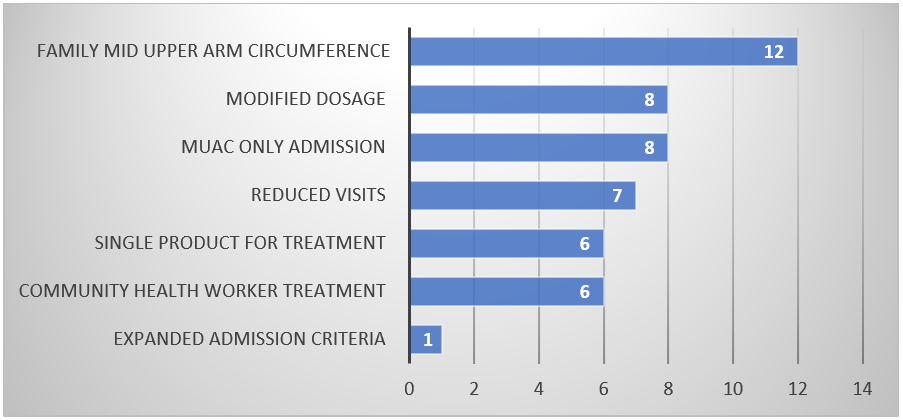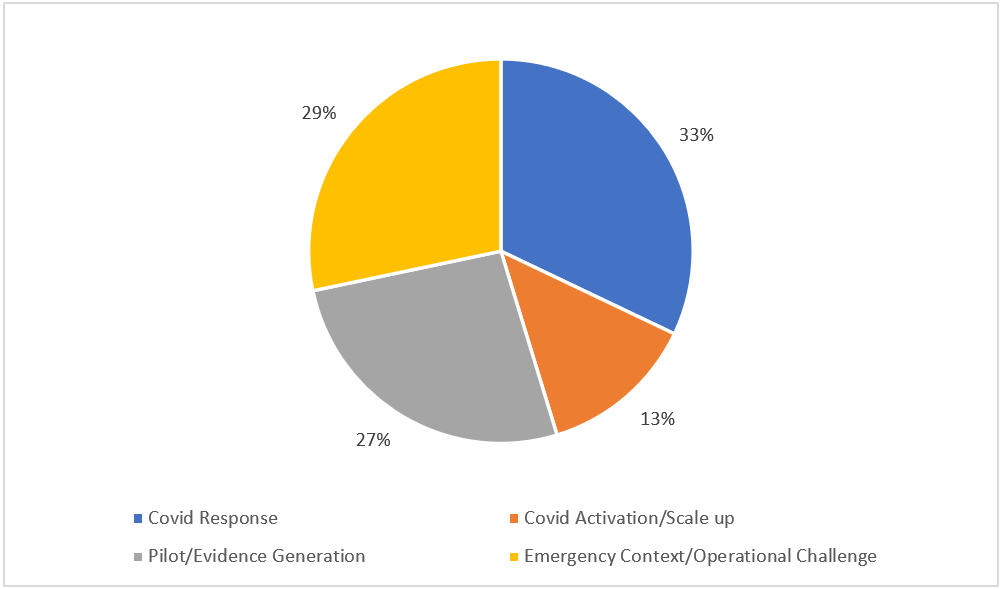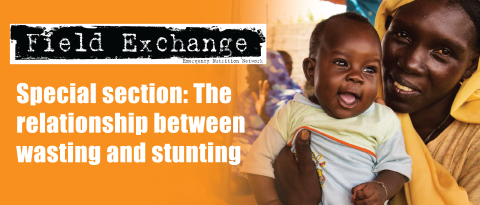Landscape analysis of simplified approaches to community-based management of acute malnutrition in the East and Southern Africa Region (ESAR)
This is a summary of the following report: https://www.simplifiedapproaches.org/_files/ugd/2bbe40_280957e3883a4b9a8bd2be47bb047998.pdf
By Michele Goergen, Tewoldeberhan Daniel and Christiane Rudert
Michele Goergen is Consultant on Simplified Approaches at UNICEF Eastern and Southern Africa Region Office (ESARO).
Tewoldeberhan Daniel is Nutrition Manager at UNICEF ESARO
Christiane Rudert is Regional Adviser Nutrition at UNICEF ESARO
Background
Many countries in the Eastern and Southern Africa Region (ESAR) are implementing simplified approaches to the community-based management of acute malnutrition. However, there is limited information on the scale of implementation in the region. A landscape analysis was conducted to identify which approaches are being implemented and what actions are required to accelerate scale-up for the early identification and treatment of child wasting across ESAR.
Methods
The landscape analysis was conducted in 13 countries in ESAR. Countries were selected if they were Global Action Plan (GAP) frontrunner countries1 or if they had implemented simplified approaches. The selected countries were Angola, Comoros, Eritrea, Ethiopia, Kenya, Madagascar, Malawi, Mozambique, Somalia, South Africa, South Sudan, Uganda and Zimbabwe.
The analysis included:
- Review of key documents: nutrition policies and guidance notes, strategies, annual planning documents, tools, reports, evaluations and research articles
- Mapping: a mapping tool was completed by country offices
- Key informant interviews (KIIs): interviews were conducted with a total of 46 KIs, including 33 Ministry of Health workers, UNICEF staff and non-governmental organisation (NGO) partners from the selected countries and 13 individuals working at regional level from a total of 11 United Nations agencies and NGOs.
Results
A total of 48 projects were identified to be implementing simplified approaches in the region. Prior to the COVID-19 pandemic, simplified approaches were predominantly implemented as emergency adaptations to mitigate operational challenges or as research/pilot projects to gather evidence. The onset of the COVID-19 pandemic resulted in a 46% increase in the use of simplifications in ESAR, either as new initiatives to respond to the pandemic or as activation/scale-up of previously implemented simplifications.
Figure 1. The number of countries implementing each simplified approach

Figure 2. Reasons for implementing simplifications

All KIs interviewed during the landscape analysis expressed a strong interest in simplified approaches and were eager for more guidance on their use and for the results from implementation research. Family mid-upper arm circumference (MUAC) was the most commonly implemented and well-received approach in ESAR although gaps remained in data collection and reporting for this approach. Many countries described challenges related to collecting screening data and continually capacitating family members to take MUAC measurements. Modified dosages and the use of a single treatment product have generated a lot of interest in the region but anxieties around pipeline management create a barrier to implementing these approaches outside of pilot projects or emergency contexts. Treatment of wasting by community health workers has been piloted in many countries. However, these countries expressed needs for more operational research to inform best practice in implementation within the health system and existing community structures and to determine the long-term cost effectiveness and optimal modalities for training and supply management.
Discussion
Although simplified approaches have been associated with positive treatment outcomes in pilot studies, many country offices expressed challenges to implementing those approaches within health systems. Operationalising these approaches requires changes to reporting mechanisms, supply chains, training and capacity building. Results from the landscape analysis highlight the following priorities for ESAR:
- Identifying simplifications that are ready for scale up within health systems
- Addressing gaps, including:
- Establishing reporting systems for simplifications, utilising existing health system mechanisms where possible
- Supporting pipeline management through caseload calculations, especially for moderate acute malnutrition.
- Supporting training and capacity development for simplified approaches
- Conducting implementation research on simplified approaches
1 Madagascar, Malawi, Burundi, Ethiopia, Kenya and South Sudan


